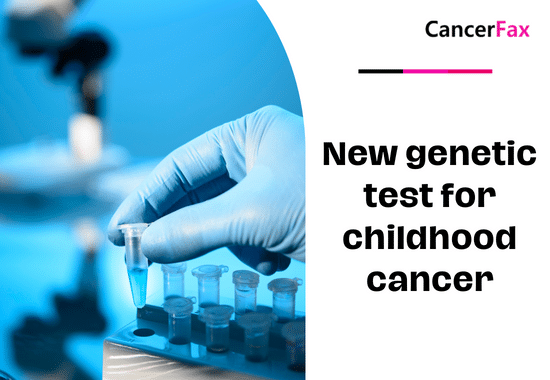Scienziati britannici iniziano i test genetici sui tumori infantili. Gli scienziati britannici sperano che i test genetici forniranno ai pazienti più giovani trattamenti nuovi e più personalizzati che ne aumenteranno la sopravvivenza. Il nuovo test analizza 81 diversi cambiamenti genetici del cancro.
Scientists say the test will lead to “a higher level of playing field” and accelerate children’s access to important new drug treatments. The test was performed at the Royal Marsden National Health System Hospital in London and will be tested on 400 children from all over the UK over the next two years.
The test has been implemented with genetic funding from the National Institutes of Health (NIHR) foundation and the Cancro Institute. A charity called Christopher has provided more than £ 300,000 in funding to develop the test. The organization was founded by a couple whose children died of invasive tumori cerebrali all'età di sei anni.
This is a real first step towards personalized trattamento per il cancro for children,” said Christopher’s parents, Karen and Kevin Capel. Christopher got a generic tumore. Hopefully, in the future, children will know exactly what type of tumor they have.” “We almost feel that the treatment for the child is not to kill the cancer, but to kill our child.”
“He used to be a healthy, happy, very athletic 4-year-old kid. But he became unable to speak or even eat on his own, and lost weight. “In the year he was diagnosed, he was unable to grow into a child of his age. We tried to keep him from other children.”
I tumori maligni sono molto rari nei bambini, non ci sono molte popolazioni di pazienti e test clinici for pharmaceutical companies will lack motivation. This means that children will miss the opportunity to receive targeted treatments for cancer cells without damaging healthy cells with innovative therapies.
Professor Louis Chesler, who is leading the genetic testing research, said: “Children often don’t have equal access to the most advanced and potentially beneficial cancer treatments.” “The cost of developing gene-targeted drugs is very high. They tend to Test it on adults first so that more people can get treatment and the results can be seen faster. ”
“This test is an incredible advance because it will very clearly identify all genetic changes in the tumor.” “Gene testing gives clinicians an extremely powerful tool—helping them choose the right medicine for their children and do their best. It may be possible to quickly determine the effectiveness of these drugs. ”
Children’s tumors are usually genetically simpler than adult tumors, so eventually these drugs may be more effective in children.” The goal of test genetici is to give scientists and doctors detailed genes for childhood tumors within a few weeks of diagnosis. information.
Genetic testing gives doctors strong evidence to use terapie mirate for younger patients, potentially preventing these patients from experiencing the side effects associated with traditional chemotherapy and radiation therapy.
Jack Daly, 14, from Wokingham, was diagnosed with a brain tumor when he was 7 and is now a brain tumor sopravvissuto. Radiotherapy helped save his life, but left him with sequelae. “My athletic ability is not very good,” Jack said. “I have to get someone to help me dress and undress at school.” “My balance is not good-I am awkward and often fall. I worked hard at school, where I found friendship.” Jack and his mother, Helen, use their donations to make ends meet in Capels-hoping that test genetici will make a huge difference in the quality of life of future children.
“La gente non vede veramente il problema perché Jack è guarito dal cancro. Non ha bisogno di essere su una sedia a rotelle. Non deve indossare una benda ", ha detto Helen.
“Se hai mai visto Jack, sembra un normale adolescente. Ma quello che non vedi è il danno al tessuto cerebrale causato dal trattamento. "
URL di origine di questo articolo: http://www.bbc.com/news/health-35918744


